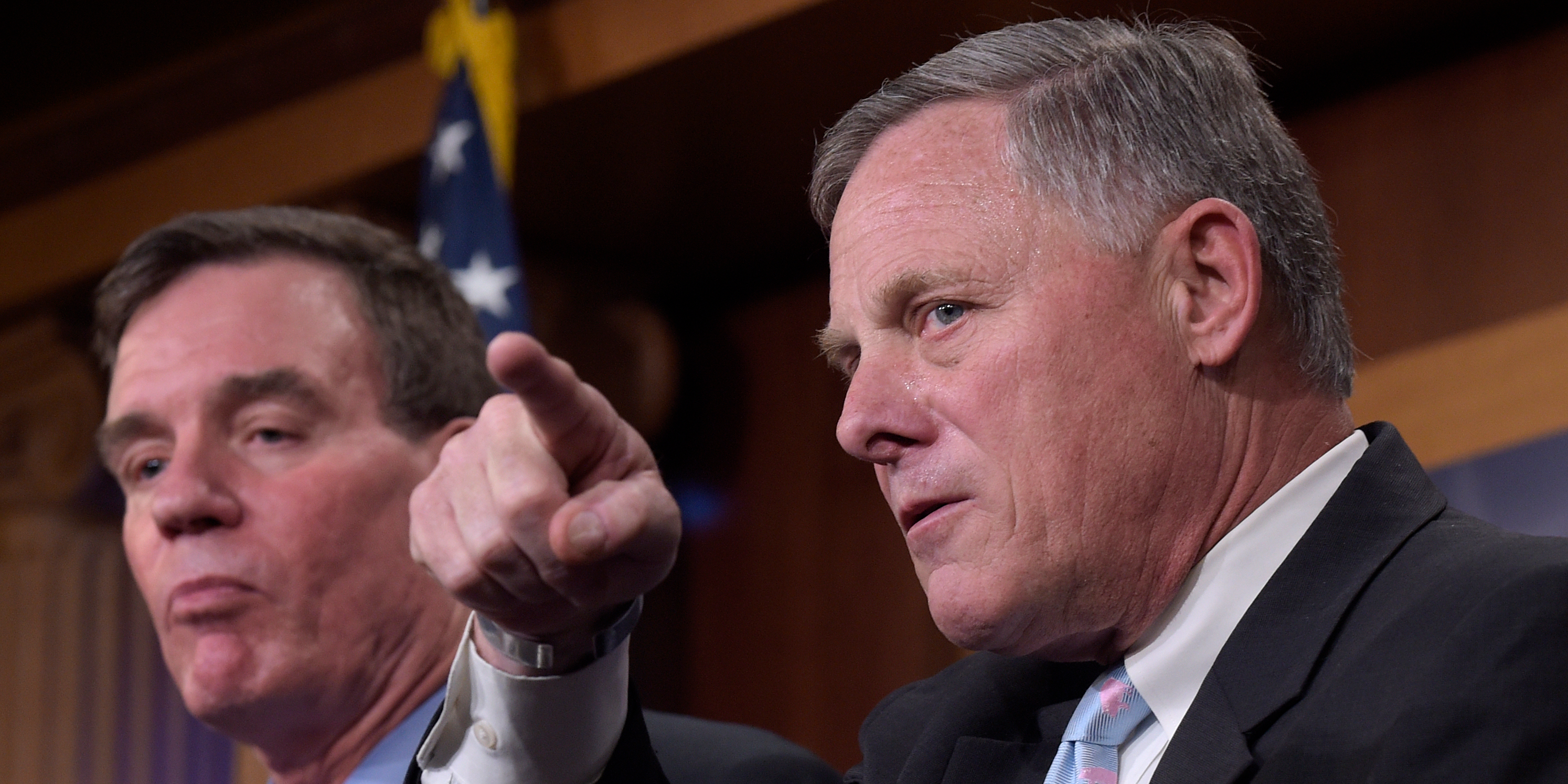- The Senate Intelligence Committee on Tuesday released a bipartisan report about the US intelligence community’s January 2017 assessment of Russia’s election meddling.
- The committee found that the assessment was a “sound intelligence product” and that the conclusions were “reached in a professional and transparent manner.”
- The findings fly in the face of President Donald Trump’s and his allies’ attacks on the intelligence community’s credibility and what they perceive as bias against them.
Sign up for the latest Russia investigation updates here »
The Senate Intelligence Committee released a report on Tuesday largely underlining what the US intelligence community said in January 2017: Russia interfered in the 2016 US presidential election to help elect Donald Trump.
Tuesday’s report flies in the face of a flurry of attacks from Trump and his allies, who frequently accuse US intelligence and law-enforcement agencies of bias and political corruption.
The committee, which is still in the process of conducting a full bipartisan review, said in its initial report on Tuesday that the intelligence community’s assessment, or ICA, was a “sound intelligence product” whose conclusions were “reached in a professional and transparent manner.”
The senators found that the Kremlin directed Russia's meddling, interfering specifically to hurt Hillary Clinton, the 2016 Democratic presidential nominee, and help Trump, the Republican nominee. The document did not draw any conclusions about whether Russia's campaign was successful.
In a press release Tuesday, the panel added that the ICA's conclusions were "well supported and the tradecraft was strong."
"The Committee has spent the last 16 months reviewing the sources, tradecraft, and analytic work underpinning the Intelligence Community Assessment and sees no reason to dispute the conclusions," Sen. Richard Burr, the Republican chairman of the committee, said in a statement.
Its vice chairman, Sen. Mark Warner, echoed his colleague.
"Our investigation thoroughly reviewed all aspects of the January 2017 ICA, which assessed that Russian President Vladimir Putin ordered an influence campaign to target our presidential election and to destabilize our democratic institutions," Warner said. "As numerous intelligence and national security officials in the Trump administration have since unanimously re-affirmed, the ICA findings were accurate and on point."
Senate Intelligence Committee reinforces the ICA's findings

Tuesday's report touched on several facets of Russia's election interference, including its social-media disinformation campaign, Russian President Vladimir Putin's intentions in ordering the influence campaign, government-linked hacking and cyberattacks, and Russia's use of its state media outlets to spread misinformation.
The ICA said that while Moscow had long sought to undermine the Western world order, its election meddling represented "a significant escalation in directness, level of activity, and scope of effort compared to previous operations."
Tuesday's report cited details that have come to light since the January 2017 report as further supporting the ICA's conclusions, including:
- Russia's extensive use of a notorious troll farm, the Internet Research Agency, to conduct a widespread social-media disinformation campaign.
- Russia's hack of the Democratic National Committee before the election.
- Russia's attempts to breach critical election infrastructure shortly before Election Day 2016.
The panel also said it had gained additional insights into Russia's interference from interviews of key figures as part of its own Russia investigation.
As far as the ICA's conclusion that Putin wanted to help Trump and hurt Clinton, the Senate Intelligence Committee said the document "provided a range of all-source reporting to support these assessments."
The panel's conclusion on this finding is likely to infuriate Trump, who has repeatedly criticized the intelligence community's assessment that Russia sought to tilt the election in his favor.
Trump and his associates are the focus of an FBI investigation into whether his campaign colluded with Moscow to influence the election - something the president and his allies have vehemently denied.
So far, the Russia investigation, led by the special counsel Robert Mueller, has yielded nearly two dozen indictments and five guilty pleas, including from Michael Flynn, Trump's former national security adviser, and Rick Gates, his deputy campaign chairman. Paul Manafort, Trump's campaign chairman, has also been charged with over 20 counts; he has pleaded not guilty.
Clarifying some aspects of the ICA

The ICA originally stoked some controversy on the right when it said the CIA and the FBI had "high confidence" in its findings while the National Security Agency had "moderate confidence."
The Senate Intelligence Committee investigated the discrepancy, and it said in Tuesday's report that the disagreement was "reasonable, transparent, and openly debated," and that it was most likely the result of "analytic differences" among the agencies.
Trump and his allies have also floated the theory - without evidence - that the FBI and the intelligence community relied extensively on an unverified dossier compiled by Christopher Steele, a former British spy, to inform their conclusions and embark on a politically motivated "witch hunt."
But the committee said that based on its interviews with witnesses, "the dossier did not in any way inform the analysis in the ICA - including the key findings - because it was unverified information."
Tuesday's report faulted the ICA for not including an updated assessment on how Russia uses its state media outlets to push its agenda.
The panel also concluded that the ICA fell short in describing the full scope of Russia's interference in US politics and the US's response.

